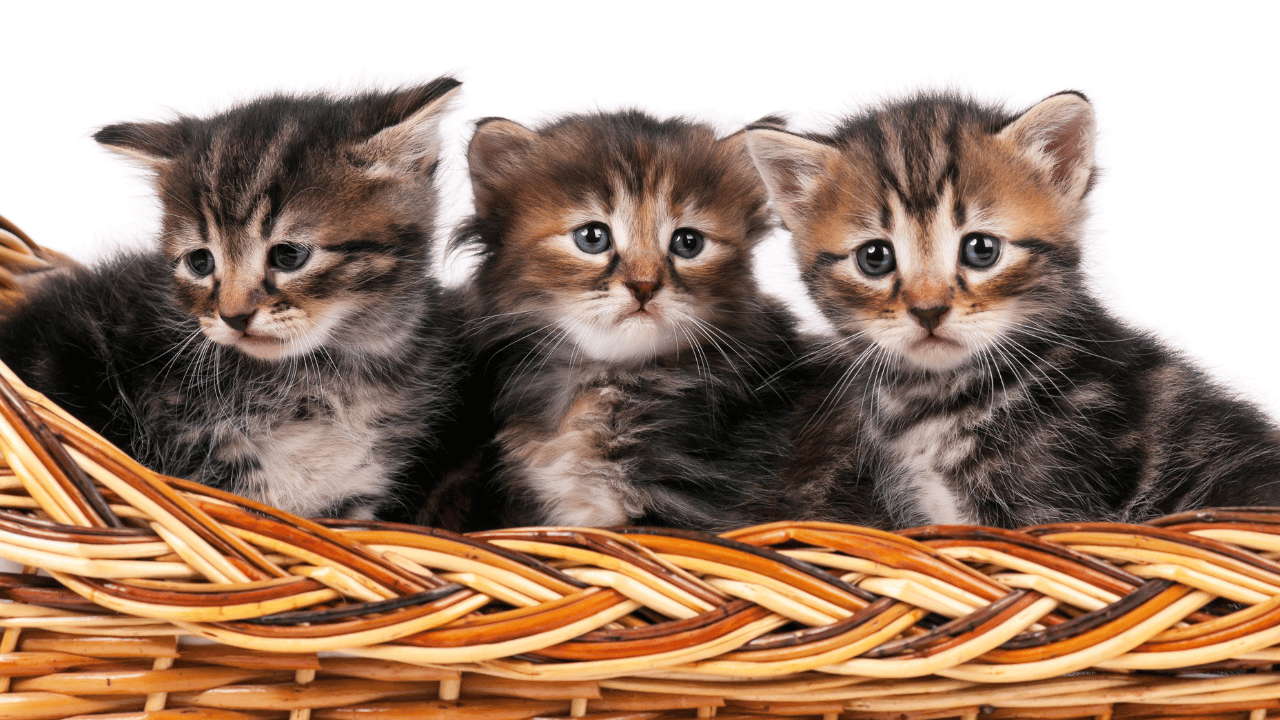Many people adore Siberian kittens because of their beauty, mischievous temperament, and predominantly hypoallergenic nature. These sweet cats are known to be suitable for many cat lovers who are hypersensitive to cats so they are popular and wanted by families and pet keepers.
What are Siberian Kittens Known For?
This is quite a common perception, and most individuals are ready to adopt Siberian kittens as they are advertised as hypoallergenic. But we must know what this means. It has been observed that other cat types are expected to produce increased levels of Fel d1 protein, which is the major cause of allergy in most people; however, the case with the Siberian cats is different as these cats have been known to produce this protein in lower levels.
A look at Siberian kittens: their shedding and dander
Nonetheless, there may be exceptions. For example, some cat-allergic individuals report having slight allergic responses even in the presence of Siberian cats while others will say that their symptoms are completely gone. It’s best to first interact with the Siberian kitten before bringing it home to prevent health complications.
What types of allergic responses do these kittens provoke?
Allergic responses involving Siberian cats for instance are hardly mentioned since such kittens are assumed to be allergy-free. This, however, does not always imply that someone can’t be allergic to a Siberian kitten, as some people may not have developed such a particular allergy but may still possess the antibodies. Hence, if you have a cat-allergic family member, it would be wise to consult your doctor before getting a Siberian kitten.
How to Provide First-Time Care for the Siberian Kitten?
If this is your first time taking care of a Siberian cat or kitten, you joyfully carry out the duties of a pet owner knowing how much the pet will love you back but also recall the care the pet requires. The following are some basic considerations regarding how to effectively provide care for a Siberian kitten and ensure that the new member of your household is content and healthy.
1. Ensuring Safety
The first step of any preparation is to ensure that there are no hazards in the house. The newcomer is a kitten and has to be active, which in turn means that it will be seeking new things around the house so be prepared for such behaviour. Always ensure that the cat has a favourite sleeping area free from harassment any mental stimulation or toys along with a litter box that has to be placed in an area that is not intrusive.
2. Grooming
This will include checking and brushing of teeth of the kittens, which will assist in breaking the structure of the soft coat as well, which reduces the chances of shedding in your home therefore reducing the presence of allergens. Besides, this will also help strengthen your bond with the innocent kitten as one grooms their pet to keep it looking fit.
3. Exercise and Playtime
Playfulness is acted out by almost all Siberian kittens owing to their lively nature. Concerning physical and psychological health, toms must be regularly exercised while at the same time being allowed time to play actively without interruption.
Get about 2–3 toys, scratching posts and puzzle feeders for your Siberian kitten.
Guidelines on the Proper Nutrition of a Siberian Kitten
1. Quality Kibble for Kittens
Apart from using neutered diets, Siberian kittens should be provided with only kitten food that is high quality. This will ensure kittens have all the crucial nutrients needed for growth and development as well as in general well-being. Look out for appropriate food that has protein, healthy fat and vitamins for growing kids.
2. Nutritional Diet
A combination of wet and dry food may be appropriate for the Siberian kittens. Wet food makes it possible to provide water and different tastes and textures while dry food is good for teeth. Still, it is best to recommend to your vet what kind of food would be appropriate for your kitten.
3. Do Not Give Dangerous Foods
Certain foods should not be within access to your Siberian kitten including garlic, cocoa, nicotine, caffeine, and onions because they are highly poisonous for cats. Make sure to provide feline food balance which has been designed for kin and developed at the right age for your kitten to remain in good health and happy.
Are They Good Around Children?
Another question that many potential owners would often ask is, Are Siberian kittens good with kids? The answer is a decisive yes! Siberian cats are very friendly, affectionate, and gentle which is nice for families which have young children.
1. Calm and Tender
Siberian are generally calm which is also a good thing when there are children for there will always be some rough play. A bit more rugged bickering is fine, although it is always proper to train children on how to treat pets. These kittens are very active and enjoy family gatherings because they are full of energy, making them great for kids.
2. Creating Lasting Relationships
It is extremely easy for unsuspecting human family members to win the affection of Siberian kittens. They are naturally social animals and adore kids. But parents need to realize that the relationship will be quite challenging if you do not want to socialize with your kitten at an early age. Peaceful interactions should be encouraged and the play closely monitored.
3. Helping Kids Live With A Kitten
This is a great time for youngsters, especially children because it gives them the chance to truly adore something else and be taught how to take care of a Siberian kitten. This even allows young kids to participate in kitten care, such as feeding, grooming, and playing with them while forming affectionate bonds and improving their sense of responsibility and feelings towards other living beings.
Other Pets And Kids With Siberian Kittens
Siberian kittens do not only suit life with children but they also get along with other pets. They possess an amiable character which ideally means that, provided they have been properly introduced, Siberian cats will safely tolerate other felines or even dogs. It is wiser to be very strict and reasonable in allowing your kitten enough time to adjust to any of the other pets present in the house.
Common Health Issues in Siberian Kittens
Siberian as a breed are quite healthy but there are some health aspects that need to be looked into. Both hard and soft tissue genetic problems may be present like all felines but normal healthy pet check-ups and preventive care are always available.
1. Upcoming Vet’s Appointment
As young kids need to visit the health centre for regular check-ups and vaccinations so does your Siberian kitten and this should be done from time to time. Such visits should be aimed at ensuring that the kitten is fit and that any health-related issues are able to be dealt with early enough.
2. Allergy Diagnostics
Siberian cats may develop allergies and if such happens, seek help from the veterinarian as soon as it can be done. Although they are said to be resistant to moulds, it also happens that some people will have mild allergies towards these kittens.
3. Cats Should be Spayed and Neutered
Essentially, pet owners will only have to worry about restrictions that such a pet will pose to the owner of the kitten or even the poor health of the pet after it has been neutered or spayed at the right age.
Conclusion
Even those with cat allergy problems may be able to tolerate Siberian cats as pets since they enjoy being cuddled with no allergen concerns. In addition, they are child-friendly with a calm and loving disposition, as well as being suitable for quiet and warm homes. To be able to raise Siberians of all ages without any concerns regarding allergies, one must learn how to care for, feed, and pamper the Siberian, and soon enough, the individual will enjoy the company of a purring and happy young cat.

